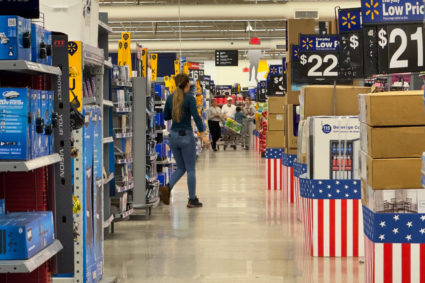Understanding Inflation: How It Impacts Consumers and the Economy
Inflation affects everyone, from families planning their budgets to businesses setting prices. As inflation rises, the cost of goods and services increases, impacting purchasing power. In 2025, worries about inflation and economic uncertainty are making headlines. Let’s explore what inflation means, why it's spiking now, and how consumers are feeling its effects.

What Is Inflation?
Inflation is the general increase in prices of goods and services over time. When inflation is moderate, it can be a sign of a growing economy. However, when prices rise too quickly, people can struggle to afford everyday essentials. The effects of inflation are especially noticeable when paychecks don’t keep up with rising costs, causing financial stress for many households.
Why Is Inflation Spiking in 2025?
Recent economic policies, especially those involving trade and tariffs, have influenced inflation rates. Higher tariffs on imported goods often lead to increased production costs for businesses. These costs are then passed on to consumers through higher prices. As described in a CNN Business analysis, tariffs imposed in 2025 have contributed to rising inflation and weaker consumer sentiment.
Data from the University of Michigan shows that inflation expectations among Americans have shot up. In May 2025, the consumer sentiment index dropped to the second-lowest on record. Many people now expect prices to keep climbing, reflecting ongoing worries about tariffs and the broader economy. For more detail, CBS News reported that consumer confidence is at its lowest level in years as inflation fears take hold.
The Impact on Consumer Confidence
As inflation persists, consumers are changing their behaviors. Surveys reveal that people are delaying big purchases and increasing savings because of economic uncertainty. According to a recent PBS News Weekend segment, officials are acknowledging these challenges, though some are downplaying the risk of rapid inflation.
Higher inflation doesn’t just affect wallets. It also shapes people’s outlook on the future. When consumers doubt the stability of prices, they may reduce spending. This response can slow economic growth and further impact jobs and businesses.
What Can You Do During High Inflation?
During periods of high inflation, it’s important to review your budget and focus on essential expenses. Consider shopping smart, comparing prices, and looking for ways to save. Building an emergency fund can also help provide financial stability during uncertain times. Staying informed through credible news sources is crucial, so revisit updates like those from CNN Business to track changes in the economy.
Conclusion
Inflation is shaping the financial landscape in 2025. Policy choices, such as tariffs, have pushed up prices and shaken consumer confidence. By understanding how inflation works and its effects, you can make better financial decisions for yourself and your family. Stay alert to economic news and adjust your spending habits as needed to stay ahead in these challenging times.